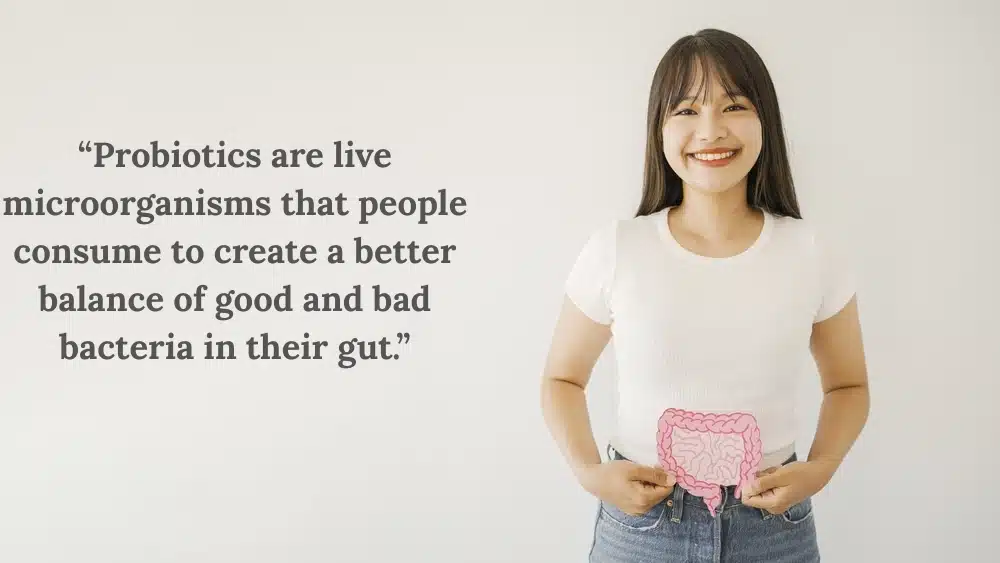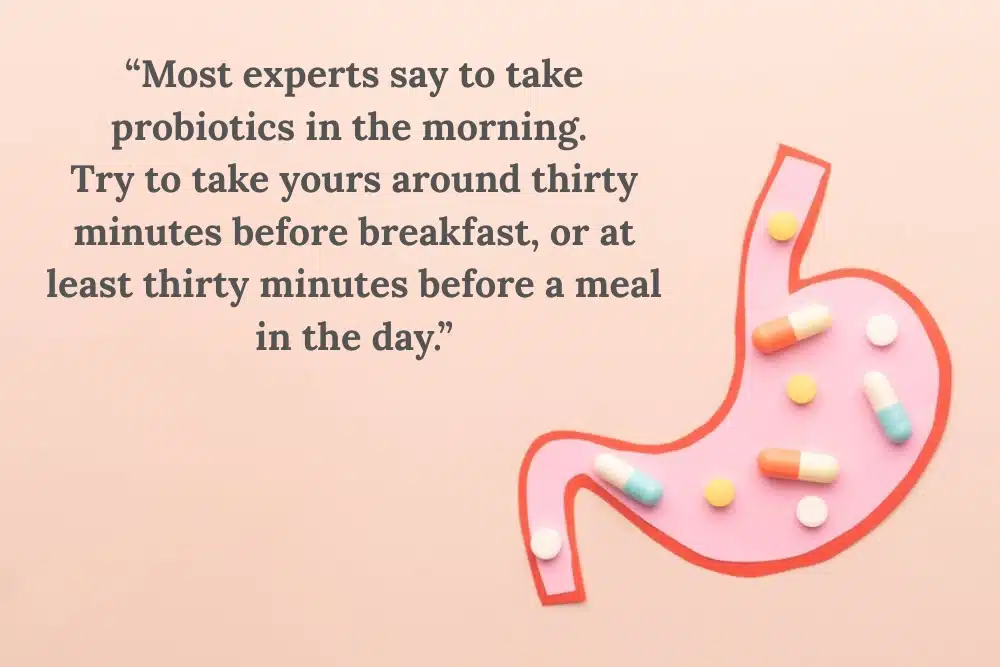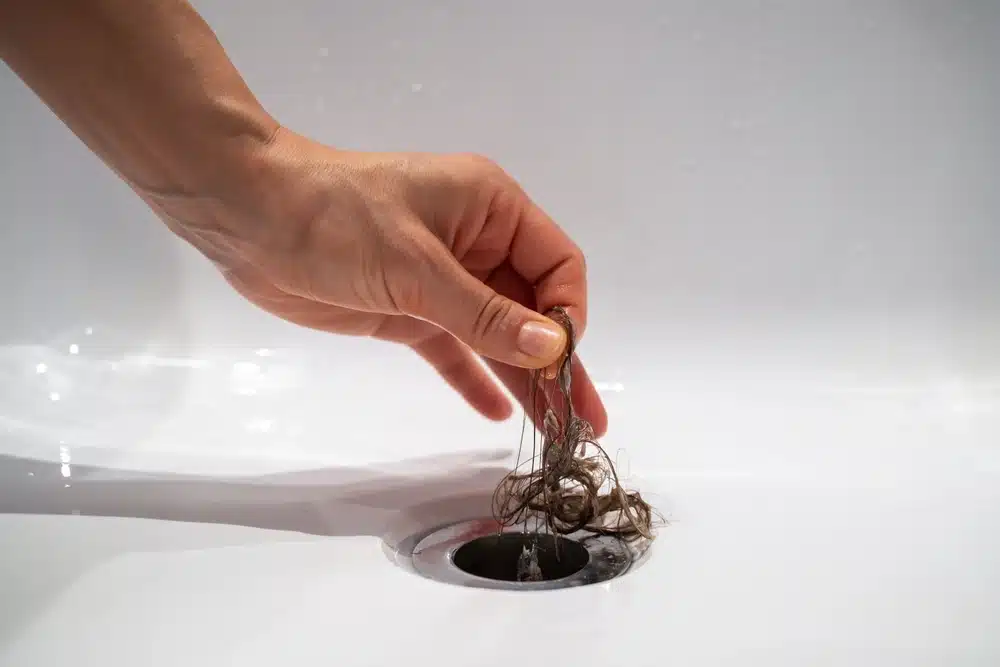You have likely heard of the myriad of ways to grow thicker, healthier hair, from taking biotin supplements to using rosemary oil on the scalp. A relatively new idea for boosting hair health is taking probiotics. The question is, does this really help, or would taking probiotics for hair growth be a waste of time? Find out all you need to know in this guide!
What Are Probiotics and What Do They Do?
Probiotics are live microorganisms that people consume to create a better balance of good and bad bacteria in their gut. This is to help create a healthy gut microbiome, which has an effect on the rest of the body’s health, including the brain. People often take probiotics to help with certain diseases like irritable bowel syndrome, to improve digestion, and to fight against infections. [1]
There are several ways to take probiotics. They are naturally occurring in foods like yoghurts, pickles, miso, and kimchi. There are also different probiotic strains, including Lactobacillus, Bifidobacterium, and Saccharomyces. [2]
The Link Between Probiotics and Hair Growth
Everybody wants the healthiest hair possible, so can probiotics help with that? There are a few reasons to suggest that probiotics can help your hair grow healthier.
Anti-Inflammatory Properties: Probiotics are good for reducing inflammation all throughout the body, including on the scalp. This, in turn, boosts scalp health, meaning the hair follicles have a better environment to grow new hairs.
Absorption of Nutrients: The scalp requires a sufficient intake of nutrients to support new growth, and probiotics enhance the absorption of these essential nutrients.
Improving Immune System Function: Taking probiotics can boost your immune system function. This may help with hair loss indirectly by preventing certain autoimmune diseases (like certain types of alopecia) from causing hair loss.
Supporting Hormonal Health: An imbalance of the bacteria in the gut microbiome can mess up hormonal health. Probiotics can help with that; they support gut health, leading to better hormonal balances. In turn, this helps maintain healthy hair, especially in those going through menopause.
Clearly, there is a gut hair connection. There have been several clinical reviews into the potential benefits of probiotics in improving hair health, with one showing a significant link between probiotics and hair growth. [3] However, more research is needed to understand the exact reasons why.
Should You Take Probiotics for Healthier Hair?
The answer to, “Are probiotics good for hair growth?” is yes. So, it makes sense to start taking probiotics to achieve healthier hair. Not only that but there are other health benefits you’ll enjoy. That being said, do not expect miracles – probiotics do not directly impact hair growth; instead, they facilitate a better scalp environment for growing healthier hair. The chances are the results will be slow and subtle.
How to Take Probiotics
Do you want to start promoting hair0 growth while also improving your gut health by taking probiotics? The next stage is understanding how to take them.
Choose the Right Probiotic
The first step is choosing the right way to take probiotics for hair growth (for you). The number of ways to take probiotics for hair growth can make it a little overwhelming!
Fermented Foods and Drinks
One of the easiest (and often most delicious) ways to take probiotics is by eating more fermented foods. These include:
- Kefir
- Cottage Cheese
- Pickles
- Kombucha
- Kimchi
- Yoghurt
- Miso Soup
If you choose to do it this way, look specifically for live and active cultures on the labels, as you want the natural probiotics to stay alive by the time it reaches your gut!
Regarding which food/drink to choose, that is entirely up to you. You may hate the idea of eating cottage cheese daily but absolutely adore miso soup. Or, you might be someone who loves eating pickles. It is all about choosing the fermented food that you genuinely enjoy so that you are more likely to consistently include it in your diet.
Probiotic Supplementation
Do you enjoy the simplicity of taking a single supplement? If so, you can find probiotic supplements that do just that.
There are several types of probiotic supplements, so it’s important to choose the right one for you. There are several strains, for example, such as Bacillus and Lactobacillus. To pick the right one, it’s important to define your specific health needs. You can also consult with a medical professional to determine the best type of probiotic for your specific goals.
It’s also worth noting there are several ways to take probiotic supplements – in capsules, powders, and liquids. Capsules make taking an accurate dosage much easier, but powders and liquids can be added to foods and drinks for a more enjoyable consumption experience.
Finally, always pick a probiotic supplement that has been made by a reputable company with good quality control standards. Also, always check the before-use label to ensure the probiotic is still safe to consume. Typically, probiotic supplements come with storage instructions, so follow them carefully.
When to Take Probiotics
Most experts say to take probiotics in the morning. Try to take yours around thirty minutes before breakfast, or at least thirty minutes before a meal in the day. The reason it’s important to take before a meal is that it ensures the probiotic can reach the small intestine while still active.
Monitoring Hair Growth
If you want to know whether probiotics have improved hair growth or at least contributed to healthy hair, it is best to monitor your growth after you start taking probiotics. To do this, consider downloading a hair track app, as this will give you a clear idea of how your hair looks after trying a new treatment.
What Type of Hair Loss Can Probiotics Treat?
Remember that probiotics for hair growth do not work as a direct hair loss treatment; instead, probiotics simply create a better environment for healthy hair growth. In some cases, this means they can help with hair loss, and these are the types of hair loss probiotics typically work best for.
Hair Loss Caused by Nutrient Deficiencies
Some nutritional deficiencies can cause hair loss, including deficiencies in vitamin D, zinc, vitamin C, iron, and vitamin A. Probiotics can help treat this type of hair loss by enhancing the body’s ability to absorb these essential nutrients. You could take a probiotic supplement before a nutritiously balanced breakfast for best results, for example.
Autoimmune Conditions
Probiotics offer benefits to those looking for ways to manage autoimmune conditions. This can indirectly help with hair loss, as many autoimmune conditions can cause hair loss. With added probiotics, this could lead to improved hair growth.
Menopausal Hair Loss
There is a reason many women are recommended probiotics during menopause – it is because these supplements may help manage menopausal symptoms by influencing hormonal balances. Many menopausal women experience hair loss during this time, and the addition of probiotics could help prevent this, allowing women to keep their hair thickness.
As you can see, there are several forms of hair loss that can benefit from probiotics.
What if Your Hair Loss is More Severe?
While there is evidence to suggest probiotics can improve hair health and even promote hair growth, that does not mean they are the best solution for targeting hair loss.
If you have more severe hair loss, you will want a more active solution. Your first step during this stage is to determine the root cause of your hair loss, which may be caused by nutritional deficiencies, an autoimmune disease (like alopecia areata), hormonal imbalances, or simple genetics. The most common cause of hair loss is androgenetic alopecia, also known as male or female pattern baldness, which affects more and more people as they age. To determine the type of hair loss you have, it is best to consult a doctor or a hair specialist, as they can rule out any underlying medical conditions or deficiencies.
More Targeted Hair Loss Treatments
Probiotics are a great addition to your diet, but if you’re experiencing hair loss, there are more targeted approaches that can help.
Minoxidil: Minoxidil is a hair loss medication that can be used by men and women for all hair types. It’s applied topically and works by stimulating blood flow to the scalp, which encourages new growth and reduced hair fallout.
Low-Level Laser Therapy: Low-level laser therapy is a non-invasive clinical treatment that involves low-level lasers getting directed at the scalp. These stimulate the follicles, encouraging them to grow new, healthy hairs.
Hair Transplant: A hair transplant is a highly effective hair surgery treatment that works best for androgenetic alopecia. It takes your own follicles and transplants them to another area of the scalp, which then grows new hairs, leading to a full head of hair once more.
Can Probiotics Help Hair Growth: In Summary
Probiotics for hair growth can work well but don’t view them as a hair loss cure. They are useful for improving your gut’s health, which can indirectly impact your hair follicles and strands. However, if you’re experiencing significant hair loss, you’ll need a more effective hair restoration solution.
Are you ready to regrow your hair once more? Our team can help you – check out our patients gallery to see what we can do.
Sources:
- https://my.clevelandclinic.org/health/treatments/14598-probiotics
- https://omnibioticlife.com/blogs/blog/types-of-probiotics#:~:text=Common%20Categories%20of%20Probiotics,Bifidobacterium%20being%20used%20most%20often.
- https://pmc.ncbi.nlm.nih.gov/articles/PMC11064082/




